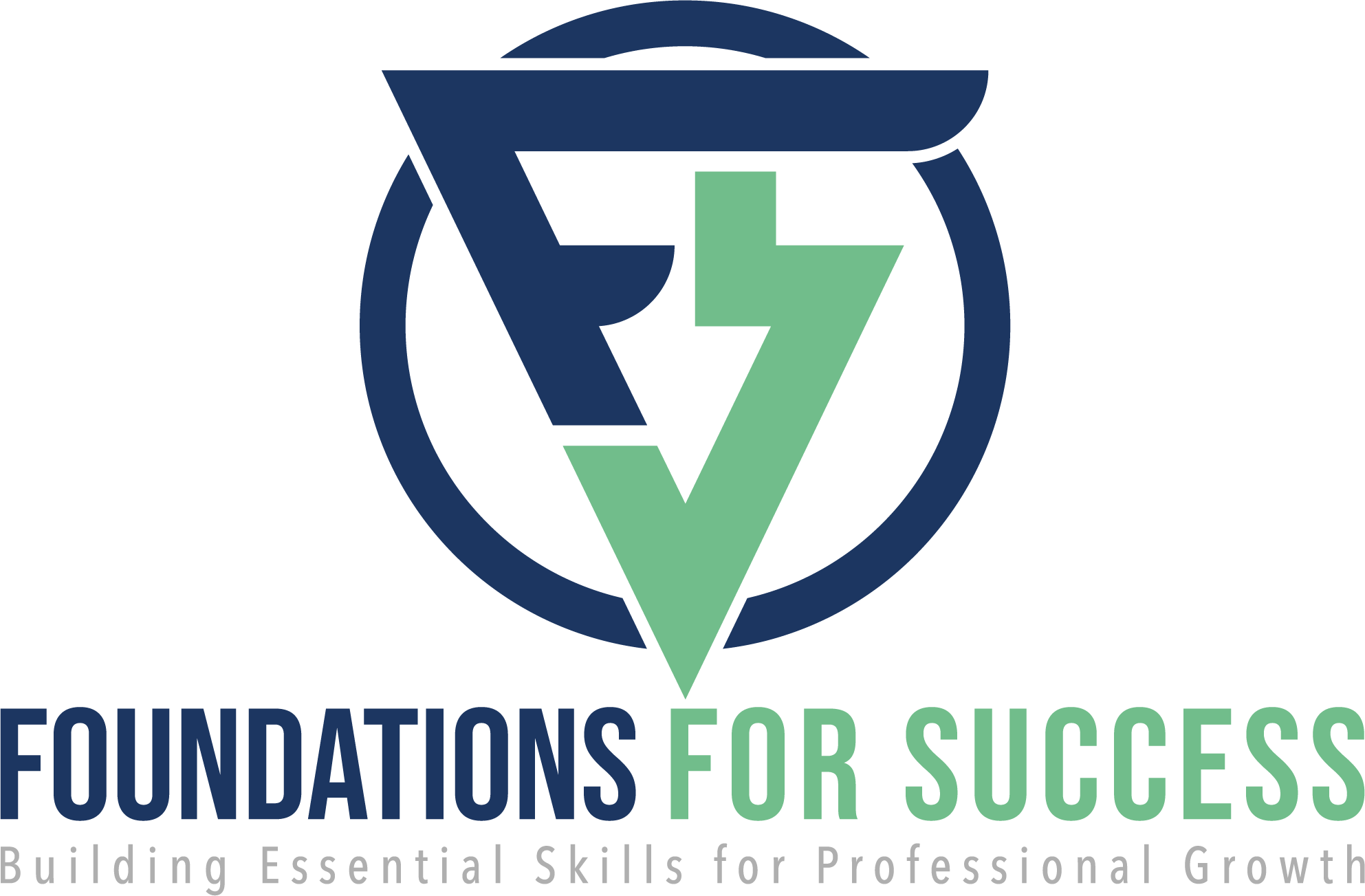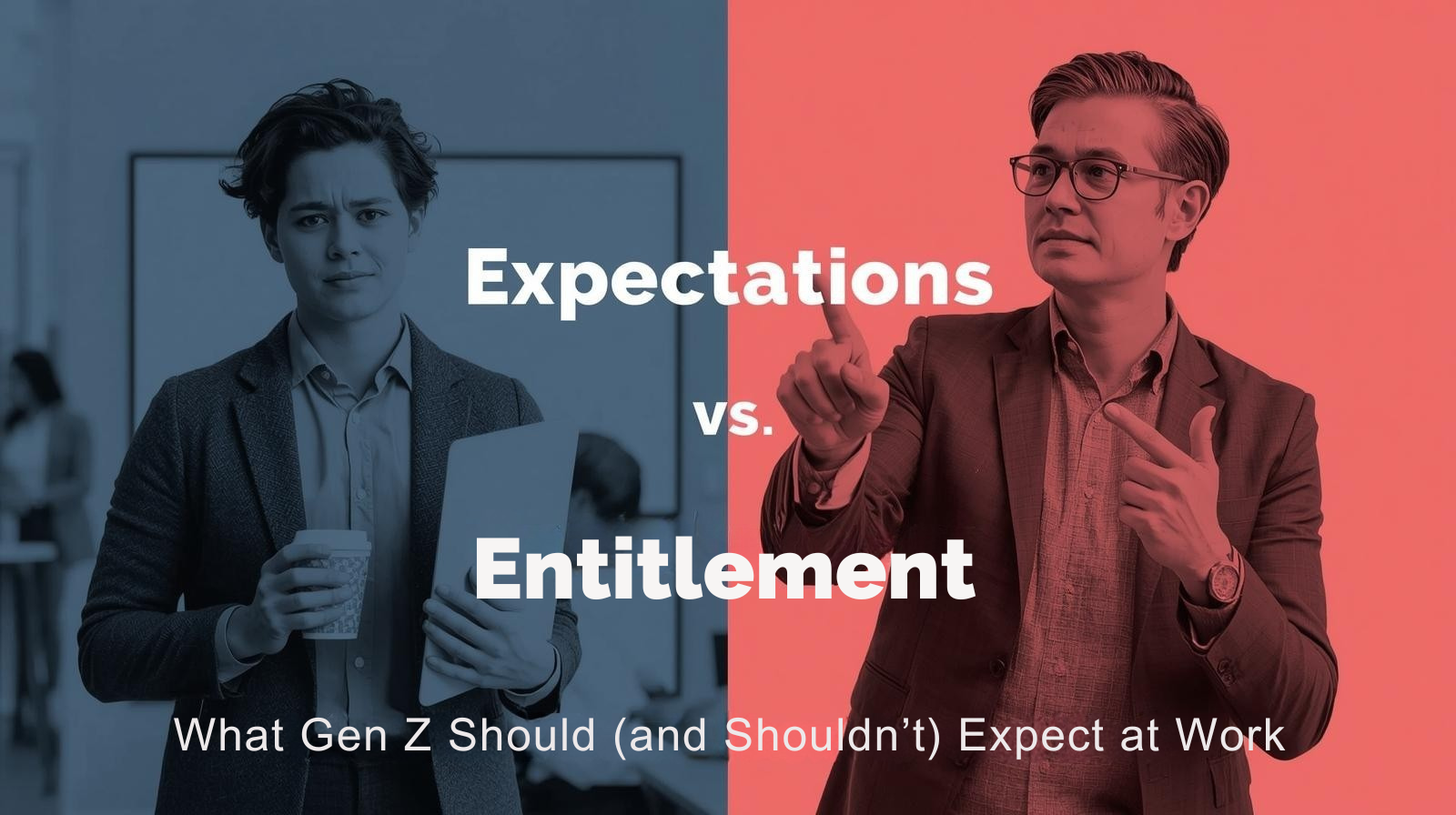There’s a fine line between expectations and entitlement. One helps you grow; the other holds you back. And if we’re honest, a lot of the tension between Gen Z professionals and their employers comes down to misunderstanding the difference.
We live in a culture that celebrates instant access: on-demand streaming, same-day delivery, viral stories. It’s no wonder many new professionals enter the workplace expecting rapid results, immediate recognition, and tailor-made flexibility. But the truth is, professional growth doesn’t move at Wi-Fi speed. It moves at the pace of trust, consistency, and contribution.
What Expectations Really Are
At its core, an expectation is what you believe should happen based on effort, communication, and agreement. It’s the standard you hold yourself and others to. Healthy expectations are rooted in reality — they’re a reflection of what’s fair, not what’s fantasy.
When you expect something because you’ve earned it, you’re setting a professional boundary. But when you expect it without having put in the work, that’s not ambition, that’s entitlement.
Here’s the difference:
- Expectation: “I’ve taken on more responsibility; I’d like to discuss how my compensation can reflect that.”
- Entitlement: “I’ve been here three months; I deserve a raise.”
One is grounded in contribution. The other assumes reward without accountability.
“Healthy expectations are rooted in reality and responsibility.”
Before you set an expectation, ask yourself “Have I earned the right to expect this yet?” That one question will save you from a lot of frustration and it will earn you respect faster than any demand ever will.
What You Should Not Expect from Your Workplace
There are a few unrealistic expectations that quietly sabotage confidence and morale in early career professionals. Let’s name them and re-frame them.
1. Instant Recognition
You might be talented, capable, and full of potential — but trust takes time. Recognition follows consistency, not personality. If your leaders don’t immediately notice your effort, keep showing up anyway. They’re watching more than you think.
2. A Tailor-Made Role
No job will ever check every box. Early in your career, the goal isn’t to find a perfect fit. Your job is to build transferable skills that make you more adaptable in any environment. Every skill you build now makes the next opportunity fit better.
3. A Friction-Free Environment
Disagreement doesn’t mean dysfunction. Conflict often signals growth. Learning to navigate diificult conversations, deadlines, and feedback is how you build professional resilience, and resilience is what employers actually promote. A perfect example of this is this seasons Georgia Bulldogs. They are considered a resilient team because of their history of battling back through adversity to win games they appear to be out of at some points throughout the game. But they fight to get back in the game and ultimately prevail. That is resilience.
4. Constant Affirmation
Affirmation feels great, but feedback is what makes you better. Don’t confuse silence for disapproval; sometimes your leader’s lack of praise means they trust you to handle things on your own. Feedback is a form of investment — the moment you stop getting it, that’s when you should worry.
“You can’t control how quickly others see your value, but you can control how consistently you show it.”
The Mindset Shift That Changes Everything
If you want to stand out, don’t chase comfort chase contribution. The employees who grow fastest aren’t the ones who demand more; they’re the ones who consistently deliver more than expected before they’re asked.
That doesn’t mean you shouldn’t want fair treatment, pay, or balance. It means you pair your expectations with effort, communication, and patience. That’s what separates the professional from the entitled. That’s where influence begins.
Looking Ahead: From Realistic to Healthy Expectations
So far, we’ve talked about what expectations are — and what they’re not. We’ve looked at the difference between showing up with responsibility versus showing up with entitlement, and how that mindset shapes your reputation and growth at work.
But here’s the thing: it’s not enough to know what not to expect. The real challenge is learning what healthy expectations actually look like and how to respond when your workplace doesn’t live up to them. That’s where we’re heading next week when we’ll unpack the five expectations every professional should rightfully have in a healthy work environment.
And, if you want to dive deeper right now, this week’s episode of the Beyond Day One Podcast takes this conversation further. As we unpack “Setting Expectations with Gen Z: What You Should (and Shouldn’t) Expect at Work.”
🎧 Tune in wherever you get your podcasts, or watch on YouTube at Foundations for Success



